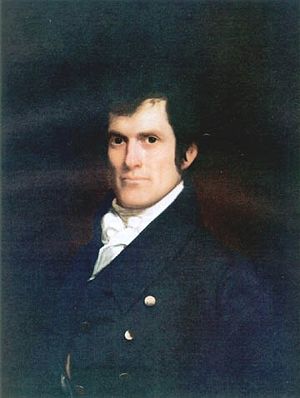John C. Calhoun
John Caldwell Calhoun (March 18, 1782 – March 31, 1850) was an American politician. He served as Vice President of United States from 1825 to 1832 under President John Quincy Adams and Andrew Jackson. He also served as a senator from South Carolina from 1832 to 1843, and from 1845 to 1850.
Nullification
Calhoun was most famous for his advocacy of nullification, which is the invalidation of federal laws by individual states. He was the secret author of South Carolina Exposition and Protest, a document that advocated the nullification of the Tariff of 1828. The document was submitted to the South Carolina legislature as a resolution, but it was not passed.
In 1832, the South Carolina legislature passed a resolution that declared the federal tariff void. President Jackson was incensed and the Congress passed the Force Bill, threatening military intervention. The incident was known as the Nullification Crisis. In 1833, Henry Clay helped Jackson and South Carolina to reach a compromise, ending the possibility of an armed invasion of South Carolina.
Slavery
Calhoun ardently supported the institution of slavery, going as far as characterizing slavery as a "positive good". The later Southern secession that led to the Civil War was partly influenced by Calhoun.
